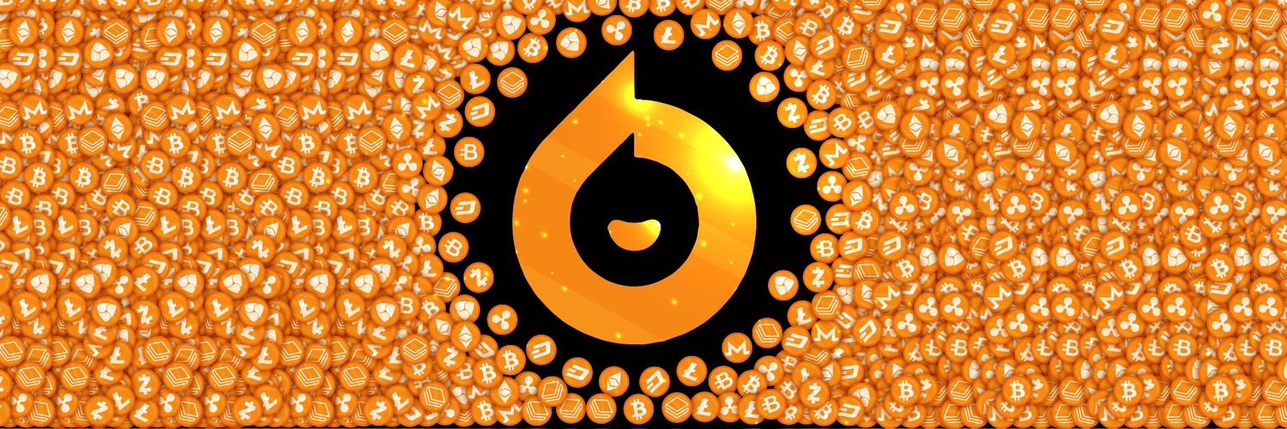Bitget:全球日交易量排名前 4!
BTC 市占率62.68%
Bitget 新幣上架 : Pi Network
BTC/USDT$83510.58 (-1.99%)恐懼與貪婪指數45(中性)
山寨季指數:0(比特幣季)
盤前交易幣種PAWS,WCT比特幣現貨 ETF 總淨流量:-$1M(1 天);-$872.6M(7 天)。Bitget 新用戶立享 6,200 USDT 歡迎禮包!立即領取
到 Bitget App 隨時隨地輕鬆交易!立即下載
Bitget:全球日交易量排名前 4!
BTC 市占率62.68%
Bitget 新幣上架 : Pi Network
BTC/USDT$83510.58 (-1.99%)恐懼與貪婪指數45(中性)
山寨季指數:0(比特幣季)
盤前交易幣種PAWS,WCT比特幣現貨 ETF 總淨流量:-$1M(1 天);-$872.6M(7 天)。Bitget 新用戶立享 6,200 USDT 歡迎禮包!立即領取
到 Bitget App 隨時隨地輕鬆交易!立即下載
Bitget:全球日交易量排名前 4!
BTC 市占率62.68%
Bitget 新幣上架 : Pi Network
BTC/USDT$83510.58 (-1.99%)恐懼與貪婪指數45(中性)
山寨季指數:0(比特幣季)
盤前交易幣種PAWS,WCT比特幣現貨 ETF 總淨流量:-$1M(1 天);-$872.6M(7 天)。Bitget 新用戶立享 6,200 USDT 歡迎禮包!立即領取
到 Bitget App 隨時隨地輕鬆交易!立即下載



Act I : The AI Prophecy 價格ACT
未上架
報價幣種:
TWD
數據來源於第三方提供商。本頁面和提供的資訊不為任何特定的加密貨幣提供背書。想要交易已上架幣種? 點擊此處
NT$1.73-8.07%1D
價格
Act I : The AI Prophecy 價格走勢圖(ACT/TWD)
最近更新時間 2025-04-13 23:23:32(UTC+0)
市值:NT$1,639,806,526.51
完全稀釋市值:NT$1,639,806,526.51
24 小時交易額:NT$1,872,669,101.69
24 小時交易額/市值:114.20%
24 小時最高價:NT$1.89
24 小時最低價:NT$1.71
歷史最高價:NT$30.49
歷史最低價:NT$0.004686
流通量:948,245,400 ACT
總發行量:
948,245,345.22ACT
流通率:100.00%
最大發行量:
--ACT
以 BTC 計價:0.{6}6392 BTC
以 ETH 計價:0.{4}3350 ETH
以 BTC 市值計價:
NT$56,637.18
以 ETH 市值計價:
NT$6,570.68
合約:
GJAFwW...gUnpump(Solana)
更多
您今天對 Act I : The AI Prophecy 感覺如何?
注意:此資訊僅供參考。
Act I : The AI Prophecy 的 AI 分析報告
今日加密市場熱點查看報告
今日 Act I : The AI Prophecy 價格 TWD
今日 Act I : The AI Prophecy 即時價格為 NT$1.73 TWD,目前市值為 NT$1.64B。過去 24 小時內,Act I : The AI Prophecy 價格跌幅為 8.07%,24 小時交易量為 NT$1.87B。ACT/TWD(Act I : The AI Prophecy 兌換 TWD)兌換率即時更新。
Act I : The AI Prophecy 價格歷史(TWD)
過去一年,Act I : The AI Prophecy 價格上漲了 +99.97%。在此期間, 兌 TWD 的最高價格為 NT$30.49, 兌 TWD 的最低價格為 NT$0.004686。
時間漲跌幅(%) 最低價
最低價 最高價
最高價 
 最低價
最低價 最高價
最高價 
24h-8.07%NT$1.71NT$1.89
7d+1.84%NT$1.53NT$1.93
30d-72.59%NT$1.53NT$6.71
90d-77.42%NT$1.53NT$8.68
1y+99.97%NT$0.004686NT$30.49
全部時間+79.11%NT$0.004686(2024-10-19, 177 天前 )NT$30.49(2024-11-14, 151 天前 )
Act I : The AI Prophecy 的最高價格是多少?
Act I : The AI Prophecy 兌換 TWD 的歷史最高價(ATH)為 NT$30.49,發生於 2024-11-14。相較於 Act I : The AI Prophecy 歷史最高價,目前 Act I : The AI Prophecy 價格回撤了 94.33%。
Act I : The AI Prophecy 的最低價格是多少?
Act I : The AI Prophecy 兌換 TWD 的歷史最低價(ATL)為 NT$0.004686,發生於 2024-10-19。相較於 Act I : The AI Prophecy 歷史最低價,目前 Act I : The AI Prophecy 價格上漲了 36805.17%。
Act I : The AI Prophecy 價格預測
ACT 在 2026 的價格是多少?
根據 ACT 的歷史價格表現預測模型,預計 ACT 的價格將在 2026 達到 NT$3.06。
ACT 在 2031 的價格是多少?
2031,ACT 的價格預計將上漲 +39.00%。 到 2031 底,預計 ACT 的價格將達到 NT$7.51,累計投資報酬率為 +313.38%。
常見問題
Act I : The AI Prophecy 的目前價格是多少?
Act I : The AI Prophecy 的即時價格為 NT$1.73(ACT/TWD),目前市值為 NT$1,639,806,526.51 TWD。由於加密貨幣市場全天候不間斷交易,Act I : The AI Prophecy 的價格經常波動。您可以在 Bitget 上查看 Act I : The AI Prophecy 的市場價格及其歷史數據。
Act I : The AI Prophecy 的 24 小時交易量是多少?
在最近 24 小時內,Act I : The AI Prophecy 的交易量為 NT$1.87B。
Act I : The AI Prophecy 的歷史最高價是多少?
Act I : The AI Prophecy 的歷史最高價是 NT$30.49。這個歷史最高價是 Act I : The AI Prophecy 自推出以來的最高價。
我可以在 Bitget 上購買 Act I : The AI Prophecy 嗎?
可以,Act I : The AI Prophecy 目前在 Bitget 的中心化交易平台上可用。如需更詳細的說明,請查看我們很有幫助的 如何購買 指南。
我可以透過投資 Act I : The AI Prophecy 獲得穩定的收入嗎?
當然,Bitget 推出了一個 策略交易平台,其提供智能交易策略,可以自動執行您的交易,幫您賺取收益。
我在哪裡能以最低的費用購買 Act I : The AI Prophecy?
Bitget提供行業領先的交易費用和市場深度,以確保交易者能够從投資中獲利。 您可通過 Bitget 交易所交易。
Act I : The AI Prophecy 持幣分布集中度
巨鯨
投資者
散戶
Act I : The AI Prophecy 地址持有時長分布
長期持幣者
游資
交易者
coinInfo.name(12)即時價格表

全球 Act I : The AI Prophecy 價格
目前 Act I : The AI Prophecy 用其他貨幣計價是多少?最近更新時間:2025-04-13 23:23:32(UTC+0)
ACT 兌換 MXN
Mexican Peso
$1.09ACT 兌換 GTQGuatemalan Quetzal
Q0.41ACT 兌換 CLPChilean Peso
$52.65ACT 兌換 HNLHonduran Lempira
L1.38ACT 兌換 UGXUgandan Shilling
Sh195.96ACT 兌換 ZARSouth African Rand
R1.02ACT 兌換 TNDTunisian Dinar
د.ت0.16ACT 兌換 IQDIraqi Dinar
ع.د69.85ACT 兌換 TWDNew Taiwan Dollar
NT$1.73ACT 兌換 RSDSerbian Dinar
дин.5.51ACT 兌換 DOPDominican Peso
$3.29ACT 兌換 MYRMalaysian Ringgit
RM0.24ACT 兌換 GELGeorgian Lari
₾0.15ACT 兌換 UYUUruguayan Peso
$2.31ACT 兌換 MADMoroccan Dirham
د.م.0.5ACT 兌換 OMROmani Rial
ر.ع.0.02ACT 兌換 AZNAzerbaijani Manat
₼0.09ACT 兌換 SEKSwedish Krona
kr0.53ACT 兌換 KESKenyan Shilling
Sh6.91ACT 兌換 UAHUkrainian Hryvnia
₴2.21- 1
- 2
- 3
- 4
- 5
購買其他幣種
在哪裡可以購買加密貨幣?
影片部分 - 快速認證、快速交易

如何在 Bitget 完成身分認證以防範詐騙
1. 登入您的 Bitget 帳戶。
2. 如果您是 Bitget 的新用戶,請觀看我們的教學,以了解如何建立帳戶。
3. 將滑鼠移到您的個人頭像上,點擊「未認證」,然後點擊「認證」。
4. 選擇您簽發的國家或地區和證件類型,然後根據指示進行操作。
5. 根據您的偏好,選擇「手機認證」或「電腦認證」。
6. 填寫您的詳細資訊,提交身分證影本,並拍攝一張自拍照。
7. 提交申請後,身分認證就完成了!
加密貨幣投資(包括透過 Bitget 線上購買 Act I : The AI Prophecy)具有市場風險。Bitget 為您提供購買 Act I : The AI Prophecy 的簡便方式,並且盡最大努力讓用戶充分了解我們在交易所提供的每種加密貨幣。但是,我們不對您購買 Act I : The AI Prophecy 可能產生的結果負責。此頁面和其包含的任何資訊均不代表對任何特定加密貨幣的背書認可,任何價格數據均採集自公開互聯網,不被視為來自Bitget的買賣要約。
Act I : The AI Prophecy 評級
社群的平均評分
4.4
此內容僅供參考。
Bitget 觀點

Crypto News Flash
1小時前
Ronin Bridge CCIP Migration Begins with Chainlink-Powered Security
After launching the migration of its Ronin Bridge to Chainlink’s Cross-Chain Interoperability Protocol (CCIP), the Ronin Network has initiated a major upgrade with its move to its cross-chain infrastructure. The goal of this transition is to bring a safer and less susceptible bridging experience to users who transfer assets on Ethereum to Ronin.
Last year, Ronin Validators voted to adopt CCIP as the network’s canonical bridge protocol, which is a significant move following this. After making the migration process, now the world is migrating to Ronin and getting prepared to retire the legacy bridge and fully transition to Chainlink’s CCIP by the end of April.
This upgrade will enable users to bridge a larger spectrum of tokens, including WETH, USDC, PIXEL, and AXS. Unfortunately, at this stage, some of those tokens, such as WBTC, LUA and LUAUSD, are not yet supported by the CCIP bridge.
“The Ronin Bridge CCIP migration has begun! Stronger bridge security powered by Chainlink,” the Ronin team wrote on X. The announcement also highlighted the ability to “bridge WETH, USDC, PIXEL, AXS and more.” Moreover, it added that the older Ronin Bridge will be officially deprecated on April 21st.
For further context, after the migration period, there will be two active bridges working concurrently: legacy Ronin Bridge and CCIP. From April 21, the older bridge will be shut down and from April 25 the CCIP bridge will take over all the cross chain functions. Moreover, Ronin Network said that all tokens still sitting on the legacy bridge will be automatically moved to CCIP by April 24 and 25.
Last month, Ronin officially went live on OpenSea, expanding its reach beyond being the exclusive platform for collectibles like Axie Infinity. The blockchain network now enables users to trade and mint NFTs directly on the world’s largest NFT marketplace, as mentioned in our previous report.
Further, the key phrase in the article puts the ball in the court of developers and exchanges to act quickly and integrate CCIP into their systems. “We encourage you to grant dual minter rights to CCIP if you haven’t already,” the network advised.
Being eminently clear that this migration is meant to secure the bar for cross-chain activity on Ronin, the entire team stated. The network sees CCIP as laying the groundwork for adoption and interaction within Web3 ecosystems, as it supports interoperability across more than 46 networks.
“This alliance reinforces the connective tissue between our movement and other communities, bringing builders closer to countless Web3 users,” the Ronin team wrote in their announcement.
Currently, users have to take no action as the transition progresses. However, from April 21 onwards, all bridge activity must be conducted through CCIP, the end of the CCIP legacy OD. Hence, this step brings Ronin one step closer to a full infrastructure shift to a more secure and scalable future of cross chain.
X-7.89%
ACT-7.42%

muphy
3小時前
$BABY Coin Price Prediction: Will It Reach New Heights?
As the meme coin space continues to evolve, $BABY coin is capturing the attention of crypto enthusiasts seeking the next big breakout. With growing community support, increasing social buzz, and speculative potential, many are now asking: Can $BABY coin reach new heights, or will it struggle to sustain momentum?
In this analysis, i dive into $BABY’s current market trends, potential catalysts, technical indicators, and what the future could hold.
1. Current Price Movement and Market Behavior
$BABY has recently shown signs of volatility, mirroring typical meme coin behavior driven heavily by community sentiment, influencer engagement, and speculative trading. Over the past few weeks, $BABY has experienced moderate price fluctuations, with traders eyeing key support and resistance levels.
Key Market Observations:
Volume Increase: Recent spikes in daily trading volume suggest renewed interest.
Consolidation Phase: After a previous pump, $BABY appears to be stabilizing, often a precursor to a breakout.
Whale Accumulation: On-chain data shows some large wallets are gradually accumulating, indicating confidence in long-term gains.
2. Potential Catalysts for Price Growth
Several factors could drive $BABY to new highs if aligned correctly:
a. Community Growth
The $BABY community is its strongest asset. As it grows on platforms like X (Twitter), Telegram, and Discord, the potential for virality increases. A united and hyped community can send prices surging.
b. Influencer Support
Endorsements or mentions from influential figures in the crypto world can cause explosive short-term gains. Previous meme coins like $PEPE and $DOGE benefitted immensely from this.
c. Strategic Listings
A listing on a major exchange (like Binance, KuCoin, or Bybit) can legitimize $BABY and increase liquidity and exposure. Even a mid-tier CEX announcement could act as a bullish catalyst.
d. Utility & Development
If $BABY’s developers introduce real utility—such as staking, NFTs, or a native DApp—it could shift it from purely speculative to a semi-functional asset, increasing its long-term value proposition.
3. Risks and Downside Factors
While the upside potential is real, it's crucial to consider the risks:
High Volatility: Meme coins can crash as quickly as they pump.
Lack of Utility: Without real-world use cases or utility, $BABY may rely solely on hype.
Market Conditions: A bearish crypto market could suppress gains across all altcoins, including $BABY.
4. Technical Analysis and Price Targets
While technical analysis has limitations in meme coins, it can still provide insight:
Short-Term Targets:
Resistance: $0.0000XXX (recent local high)
Support: $0.0000YYY (where price bounced recently)
A breakout above resistance could send $BABY to new highs, especially with strong volume confirmation.
Mid-Term Outlook: If momentum builds and a bullish catalyst arrives, $BABY could challenge its previous ATH (All-Time High). Otherwise, it may consolidate or correct further before any significant move.
5. Expert Opinions and Community Sentiment
Some crypto analysts suggest $BABY is in the early stages of a new cycle, comparing it to pre-breakout stages of tokens like $SHIB. Sentiment across forums like Reddit and Crypto X is cautiously optimistic, with many investors watching for a decisive move.
Polls on social media show a split between those expecting a new ATH this cycle and those expecting another dip before liftoff—classic signs of an indecisive but engaged market.
Conclusion: Is $BABY Ready to Fly?
The stage is set for $BABY to potentially reach new heights—but it's not guaranteed. Traders and investors should keep a close eye on volume trends, social sentiment, whale activity, and potential announcements.
If the hype aligns with strong technical support and market momentum, $BABY could surprise the market.
However, caution is advised. Diversification, risk management, and a long-term perspective remain key to navigating any meme coin investment.$BABY
X-7.89%
BABY-10.05%

AetosTrading
5小時前
Bitcoin's Bounce, Your Weekly Scoop on the Bullish Surge!"
$BTC $SOL $XRP Bitcoin Weekly Market Update
Market Performance: The market has unfolded as anticipated, aligning with our projections.
Short-Term Outlook: Expect a relatively narrow trading range this week due to the absence of major news catalysts.
Bullish Perspective: We maintain a bullish stance, targeting a price range of $88,000–$92,000.
Local Bottom Confirmation: Bitcoin appears to have established a local bottom. Notably, it diverged from Ethereum, which recorded lower lows, while Bitcoin resisted forming a new low.
Technical Analysis: Last week, Bitcoin respected a daily bullish order block, resulting in a strong upward move.
Key Support Level: This week, an inverse fair value gap (FVG) on the daily chart around $82,400 is expected to act as a liquidity zone and support, with price likely to tap this level and rebound higher.
Thank you for your support! Stay tuned for more insights. 🚀
BTC-2.05%
MOVE-11.91%

DeFi Planet
5小時前
⚡️INSIGHT: Senator Cynthia Lummis is pushing for the US to hold 1 million $BTC under the proposed BITCOIN Act.
Her vision? To position the United States as a global #Bitcoin superpower and secure long-term financial sovereignty.
Could this bold move change the future of crypto adoption worldwide?
#BitcoinAct #Web3
BTC-2.05%
ACT-7.42%

Bpay-News
8小時前
Opinion: Chaos in the U.S. bond market may force the Fed to intervene, which may prompt some investors to turn to Bitcoin
JPMorgan Chase CEO Jamie Dimon is preparing for chaos in the nearly $30 trillion U.S. Treasury market, which plays a central role in global finance, setting the tone for everything from mortgage rates to corporate bond yields, and the Federal Reserve will only act if "they start to panic a little bit." Jamie Dimon warned that if the financial system is paralyzed again, the consequences could spread throughout the economy. Turmoil in the U.S. Treasury market that leads to Fed intervention could prompt some investors to turn to Bitcoin (BTC), which is often seen as a hedge against currency instability, which seemed to be the case in 2020, when the Fed's aggressive stimulus measures sent Bitcoin prices soaring. (CoinDesk)
BTC-2.05%
ACT-7.42%
相關資產
最近新增
最近新增的加密貨幣
相近市值
在所有 Bitget 資產中,這8種資產的市值最接近 Act I : The AI Prophecy。
關於 Act I : The AI Prophecy 的更多資訊
























.png)
